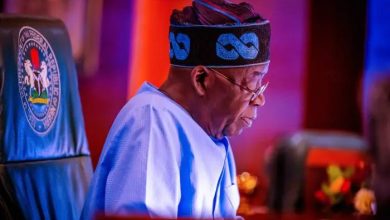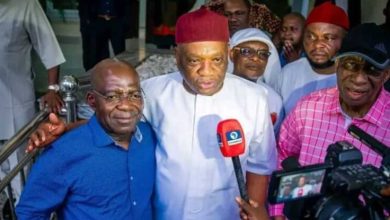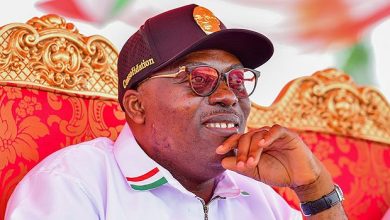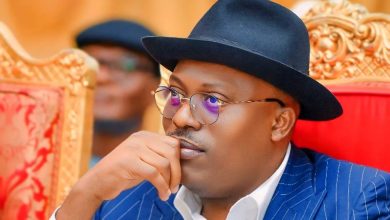Tinubu Finds Opposition Crisis Entertaining, Says He Won’t Intervene in Party Defections
Tinubu denies steering Nigeria toward one-party rule, says defections reflect internal party failures.
He urges rivals to embrace reform, adding that their political drama is quite entertaining.
President Bola Ahmed Tinubu has declared that he is taking no steps to help opposition political parties grappling with internal discord, adding that he actually finds their struggles amusing. He made the remarks during a joint session of the National Assembly in Abuja on Thursday, as part of Nigeria’s Democracy Day celebrations.
Speaking to federal lawmakers and other dignitaries at the session, Tinubu dismissed the idea that he or his party, the All Progressives Congress (APC), had a hand in the growing wave of defections rocking opposition parties. Instead, he pointed fingers at the opposition groups themselves, urging them to take responsibility for their internal instability.
“Political parties that fear losing their members should look inwards and assess their own structures and leadership rather than conjuring imaginary threats,” Tinubu said pointedly.
He further noted that, contrary to accusations that the ruling party is luring opposition figures with incentives, the APC remains open to receiving anyone who aligns with its agenda. However, he insisted that the chaos within rival parties is self-inflicted.
“Honestly, watching the confusion and drama unfolding in some of these parties is quite entertaining. I see no reason to get involved in solving problems they created for themselves,” Tinubu said to a mix of laughter and applause.
The President’s comments come amid a noticeable increase in defections from opposition parties to the APC. Notably, Delta State Governor Sheriff Oborevwori and Akwa Ibom State Governor Umo Eno recently announced their defection to the ruling party, joining several lawmakers who have also switched allegiances.
These high-profile crossovers have sparked debates among political analysts and citizens alike, with many questioning whether Nigeria is heading toward a dominant-party system a situation where one party becomes so powerful that genuine competition is weakened.
However, Tinubu firmly rejected such concerns, saying the speculation about Nigeria becoming a one-party state is both “baseless and unnecessary.” He reaffirmed his belief in political pluralism and the necessity of opposition in a thriving democracy.
“Nigeria is not moving toward a one-party state, and we must ensure it never does,” he emphasized. “However, no one should be prevented from joining our party if they see value in what we’re doing. I welcome all new members to the APC with open arms.”
Tinubu stressed that the strength of Nigerian democracy lies in its diversity both politically and culturally. He urged all political actors to engage in healthy competition that advances the national interest.
“Our goal should never be to silence the opposition,” he said. “Rather, let our differences lead to constructive dialogue, healthy debates, and bipartisan efforts that serve the Nigerian people.”
In a symbolic gesture reflecting national unity and reconciliation, President Tinubu also announced his intention to honor a number of iconic Nigerians for their contributions to the country’s democratic development and social justice.
Among those set to be recognized are the late democracy advocate Kudirat Abiola, Nobel Laureate Professor Wole Soyinka, former Chief of Staff Shehu Musa Yar’Adua, and environmental activist Ken Saro-Wiwa.
Tinubu disclosed that he would be granting presidential pardons to some of the deceased figures, using his constitutional power under the prerogative of mercy. He added that the full list of honorees would be released after consultations with the National Council of State.
“These individuals played significant roles in shaping our national conscience and should be acknowledged for their sacrifices. It is my honor to grant them a measure of posthumous justice,” he concluded.
The address ended with calls for renewed unity, tolerance, and dedication to democratic principles as Nigeria continues to navigate its political journey.



